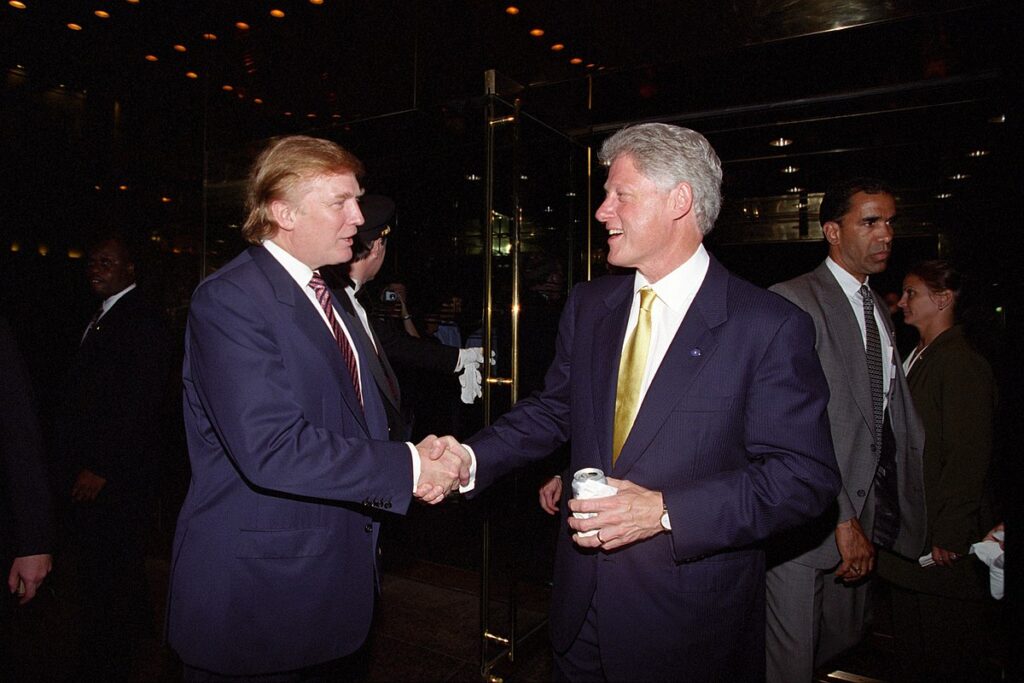Will Attacking the Billionaire Cabinet Give Democrats Working Class Cred?

Michael Tomasky thinks so. I am a lot more skeptical. First, Tomasky:
But the total net worth of Trump’s Cabinet? It’s at least $13.3 billion, and that’s not because there are just one or two really wealthy picks. Just-named Small Business Administration nominee Kelly Loeffler and her husband, for instance, are worth $1 billion. By Axios’s count, at least 11 billionaires “will be serving in key roles in the administration” if they’re all confirmed. That’s not even counting Vivek Ramaswamy and Elon Musk, who won’t be official Cabinet members. If you throw them in, the total is $360 billion (the vast majority of which is Musk, the world’s richest man). And then, of course, there’s the billionaire presiding over all of them.
But let’s stick with the roughly $14 billion net worth of those nominees who’ll appear before the Senate. It’s a staggering figure. It’s often forgotten that one of the core characteristics of authoritarian regimes, along with extremism and nativism and so on, is corruption. Authoritarians are corrupt and self-dealing, from Hermann Goering’s art collection to Imelda Marcos’s shoes. And, accountability being a bourgeois democratic concept, it’s something they laugh at. It’s in their nature.
I don’t know how all these people made their money. I don’t quite agree with Balzac that there’s a crime behind every fortune, and of course there are certainly ways in which people who build large companies are to be admired because of their contributions to technological innovation or their communities or both. But I do believe two things.
One: The vast majority of great fortunes in this country in this day and age are made with a helping hand, somewhere along the way, from the federal government—a favorable agency ruling, a soft plea deal with a federal prosecutor for something or other, a government loan. Indeed, Tesla in 2010 got a whopping $465 million loan from the Department of Energy. Tesla, I should note, repaid the loan quickly, but still, the company apparently wouldn’t have been able to launch its successful Model S without Uncle Sam’s help.
Two: There may not be a crime on record, but there’s bound to be some kind of skeleton in almost any rich corporate closet. Labor violations, hiring discrimination, failure to pay certain fees or fines, price collusion or manipulation, lack of required legal transparency with consumers. Many companies—maybe most companies—engage in this kind of behavior to one degree or another. And the documentation is always there, for those with the capacity to dig.
So this tees up the Senate Democrats’ big job at these hearings. They have to make sure, when these hearings are over, and whether the nominees are confirmed or not, that America sees them through one lens only: as a bunch of out-of-touch plutocrats. They’ll need to pick their shots well, but surely they’ll be able to find three good cases in which these nominees have in some way made consumers’ lives a little harder than they needed to be.
Maybe. But the problem is that Democrats cozy up to billionaires of their own. Look at the reaction to the killing of that healthcare dude. People loathe billionaires in very specific industries. But a lot of those people look at billionaires in other industries and see someone who might help them, whether that person is Donald Trump or Elon Musk. If the attack is on billionaires generally, then it’s really hard when Chuck Schumer and Kamala Harris and Barack Obama and the rest of the Democratic establishment cuddle up with their own billionaires. It’s not that Democrats don’t have better policies for the working class–you and I both know that they do. It’s that they do a terrible job of communicating that and part of it is an unwillingness to speak a class-first language. FDR often spoke a class-first language and that guy was a significant proponent of monopoly, as his small business critics frequently pointed out when they called him both a communist and a fascist at the same time. So you don’t even have to exile all billionaires from the Democratic Party. But you do have to demonize them if you want to demonize Trump’s billionaires. It’s not as if the low-info swingy voters who went for Trump don’t know that he likes rich people.
In other words, if there’s room in these Cabinet hearings to go after Trump’s people for being rich assholes, then by all means, go for it. But I am quite skeptical that this will do much to reach out to working class Trump voters without a much clearer agenda of demonizing the rich that includes delivering on populist economic policies. And there’s no way Dick Durbin is going to do that in Judiciary, as one example.
